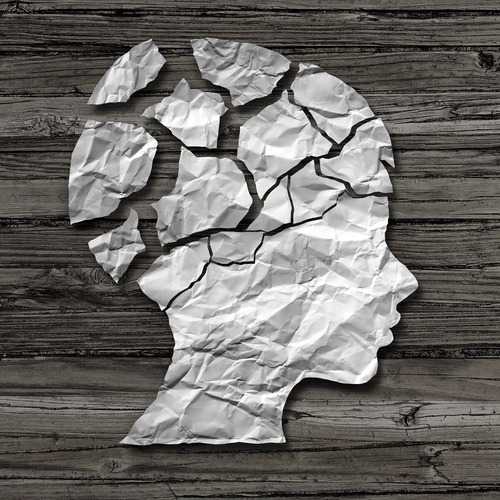
Jump To:
Traumatic brain injuries, known as TBIs, are a type of brain injury that can lead to brain damage. All TBIs are brain injuries, but not all brain injuries occur because of traumatic events. There are other types of brain damage that can leave the person with temporary or permanent impairments. He or she may require intensive rehabilitation or even ongoing care and assistance with everyday self-care tasks.
Types of Brain Injuries, Causes, and Outcomes
There are three types of brain injuries:
- Traumatic brain injury
- Acquired brain injury
- Congenital brain injury
Brain injuries are classified into one of these categories based on their cause and when they occurred. Their initial treatment is different, but the damage left by these injuries can look remarkably similar in some cases. Any type of brain injury can cause temporary or permanent impairment.
Traumatic Brain Injury
A traumatic brain injury (TBI) occurs after you sustain a violent blow to your head or a jolt to your body. A TBI can also be caused by any object that penetrates your brain tissue. A TBI can occur during a shooting, stabbing, and/or fight that results in a violent blow to the head. The skull breaks and the brain underneath sustains damage. Some TBIs are also closed-head injuries where the skull is not fractured, but the brain moves inside the skull, causing injury. Many car accidents and slip and fall accidents lead to a TBI.
Acquired Brain Injury
An acquired brain injury (ABI) happens at the cellular level. An ABI occurs because of an illness or other medical condition that applies pressure to the brain or starves the brain of oxygen, as in anoxic and hypoxic brain injuries. ABIs can be very mild or severe in nature. An ABI may occur because of a tumor, neurological illness, stroke, heart attack, or infection that affects the brain.
Congenital Brain Injury
Congenital brain injuries are birth injuries that stem from genetics or trauma that occurred during birth. Congenital brain injuries, or congenital brain malformations can cause serious and lasting problems for babies who are diagnosed with this type of damage.
These three types of brain injuries can cause localized (focal) or widespread (diffuse) damage. A focal injury, such as when a bullet, knife, or other object enters the skull, damages the parts of the brain it directly affects. A diffuse axonal injury can affect wide areas of the brain at one time, according to John Hopkins Medicine.
Many Brain Injuries Can Be Managed or Prevented
Many brain injuries including TBIs, ABIs, and congenital brain injuries are preventable. They may occur because of an accident or illness, but with proper care, the severity and lasting damage can be mitigated. Some reasons why brain injuries may occur or worsen because of medical malpractice include:
- Misdiagnosis
- Failure to adequately observe
- Failure to diagnose intracranial pressure or another complication
- Failure to treat
- Lack of prompt treatment
- Surgical complications such as stroke
- Birth complications and injuries
- Preventable injuries or infections
To learn if you have a viable medical malpractice case, you should discuss your case and your options with someone who is familiar with medical negligence cases, such as an attorney from Newsome | Melton. Our attorneys can help you understand the difference between brain damage and traumatic brain injury, as well as your rights and the steps necessary to file a claim.
Your Brain Injury May Support A Medical Malpractice Claim
Depending on the facts of your case—or the case of your loved one—you may be able to pursue compensation for your brain injury. You also may be eligible to receive compensation for medical care, lost wages, out-of-pocket costs, and pain and suffering related to your brain injury. Medical malpractice can cause or contribute to brain injuries.
One of the medical malpractice attorneys from Newsome | Melton can review your case and help you understand if your case is strong enough to pursue legal action. Liable parties may include:
- The doctor
- Another care provider
- The clinic or hospital
Knowing the difference between brain damage and traumatic brain injury is important. Acquired brain injuries and congenital brain injuries may be more likely to support a medical malpractice case, while traumatic brain injuries may support a personal injury case against the party who caused your accident and injuries. It is important to note, however, that there are several ways that medical malpractice can cause TBIs, as well.
Talk to a Medical Malpractice Attorney About Your Brain Injury
If you or a loved one sustained a brain injury because of a medical care provider, or if he or she failed to accurately diagnose and treat your brain injury, you may have a valid medical malpractice case. A brain injury attorney from Newsome | Melton can help you understand the difference between brain damage and traumatic brain injury while reviewing your case for free. We may be able to take legal action on your behalf to pursue compensation for your economic and noneconomic losses.
Call (855) 633-2757 today to learn how we can help you build a case and take legal action against the negligent party who caused your injury.
Medical Negligence - News Articles

If you’ve suffered as a result of medical malpractice, you’re not alone. A recent study found that more than 250,000 individuals die annually as a result of medical malpractice and negligence. To help you get swift justice, we’ve explored everything you need to know about medical injuries, including common injuries and when to hire an attorney. That
Read More
Lawsuit Accuses Vermont Hospital of Medical Malpractice On March 24, 2014, Cynthia Hawthorne experienced an intense pain in her lower abdomen. The agony became so unbearable that she went to the emergency room at the Brattleboro Memorial Hospital to seek treatment. Doctors at the Vermont hospital believed that she was suffering from diverticulitis, which is
Read More